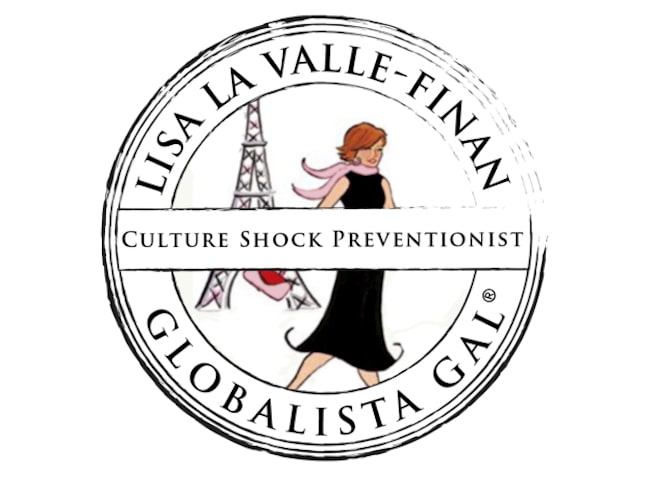Words of Advice from the Expat Whisperer
- SUBSCRIBE
- ALREADY SUBSCRIBED?
BECOME A BONJOUR PARIS MEMBER
Gain full access to our collection of over 5,000 articles and bring the City of Light into your life. Just 60 USD per year.
Find out why you should become a member here.
Sign in
Fill in your credentials below.
Lisa Finan has built a career in several countries helping people expatriated to Europe. She calls herself an expat whisperer, pinpointing the distress and confusion of professionals who are hyper-competent in their homelands, but at wit’s end abroad, then helping them to adapt and even thrive in their new environment. Nowadays, with the coronavirus and also weird weather and political upheaval, being an expat has never been so fraught.
So what is an “expat whisperer”?
“An ‘expat whisperer’ is the personal brand term I coined as an expat career and life coach. I added life because when people come to me, it’s not only about ‘the job’. More often than not, it’s about yourself and your life. Who you are, your identity, and what you will become after the job relocation. These factors are inextricably intertwined.”

Photo © Lisa La Valle-Finan
Finan is a trained intercultural adaptation coach, but an expat whisperer must also have a feel for people, a “sixth sense” for cultural insight. She says that she’s very adept at communicating with people in general, picking up on both verbal and nonverbal cues.
“To effectively communicate with an expat, you need to understand the expat mind-set, or what I call the ‘3 R’s’ 1) How they reason (think) 2) how they relate (communicate) 3 how they regulate (behave).”
As I myself can attest, being a long-time French resident, expats operate in a hybrid mentality, often feeling neither “here nor there”. They know they’ve made one of the best decisions of their lives, to advance their career, by moving it around the world, but it comes at a price. Sometimes that price, despite all their effort, competency, and fearlessness, is isolation and uncertainty. This where Finan’s unique experience comes in.

Photo © Sergey Zolkin, Unsplash
“I’ve found that there are many elements that need to come together to give my clients a rich and useful coaching experience. First is my upbringing, because I was raised by Italians in the United States, so I understand that there are other ways of seeing. Second, I’ve also lived in several countries, including France, Greece, the UK, and Spain, and among many different kinds of people in those places.”
This helps her to explain to others “how the world works”. She can also help them make sense of their world, empathizing with them, through what she calls a “reflexive socio-cultural lens”. Reflexive empathy is at the root of transformational coaching, which enables Finan to build trust very quickly.
“Because we have limited time, I must be able to do that. Then I can ‘see’ who my client is, and ‘read the air’ as a Japanese expression says. To become very intimate with my clients allows me to ‘see’ if they are being authentic, speaking with truth and self-awareness about themselves, and their history, in the context of their career, because only then can we get on the right path to their career goals.”

Photo © Lilibeth Bustos Linares, Unsplash
To go about this is an intricate process. She “listens loudly” in the first few sessions, to the client’s needs and wants, personal and professional. The client’s nonverbal language is as important as what is said, especially when what people say, if they are in a place of uncertainty, is different from what they mean or feel. It’s at that moment that she begins to “hear” them.
“This is when the magic begins. Most people not only want to be understood, they also want to be recognized. When they know they are in a safe space, they can give voice to their dreams aloud, without fear of criticism.”
I asked Finan how she started. She explained that most of her career in New York was spent in public relations. After having children, she decided that if she went back to work it had to be for something she loved, and for her that meant something related to culture. She said she’s obsessed with culture, and its dynamic nature.

Photo © Daria Shevtsova, Pexels
“It’s a fascinating space to be in. To continue learning what makes the other guy tick.”
She was led to cross-cultural training. In addition to the humanities she had a special kind of training which was crucial to her qualification to be an expat whisperer:
“I have a BA in English/American Literature plus a Minor in French Language Studies, but I did graduate work in Applied Business Anthropology. It’s a subfield of anthropology. We apply the ethnographer’s tools to the needs of private sector organizations, to identify and solve business problems. Within that I specialize in intercultural management and communication.”

Photo © Sloandot pics, Pexels
What makes France a special challenge?
“France is the paradox of all culture paradoxes. For every benchmark there is an exception, which can make working with the French bewildering. They like rules and guidance yet can be assertive and independent. While the French mind is very Cartesian, contemporary French culture takes ‘I think therefore I am’ to another level. If they are not constantly questioning they do not exist. There are a lot of psychological and cultural layers to get through, but luckily, clients come to me very motivated, so they are willing to do the work.”
Finan adds that important parameters have changed for expats who are adapting to a new environment. Professionals are so globalized (at least in theory) that they take for granted interaction with others from various cultures; sharing values, perceptions, and attitudes along with the goods, information and services. But interactions today are not only impacted by cultural differences but generational ones.
“For Millennials working with Boomers, bridging the generational gap culturally is one thing, then there’s the added layer of their digital world. Working with both generations in the digital world or virtual space is even more challenging. I try to help bridge the gap and develop harmony in the workplace with customized seminars.”

Photo © Fauxels
What is special now with the COVID-19 situation—and in the near future? Finan has some advice for those who may be changing countries in the current moment.
“Expect the unexpected. Being an expat already implies a high degree of comfort with risk and uncertainty, but there’s an even higher level of both during the age of coronavirus. I recommend: 1) Adjust your mind-set to “acceptance mode” to cope psychologically, by putting this existential moment into perspective and 2) Surrender to it, knowing that the circumstances of the pandemic are beyond your control. The only thing you can do is control your own behavior. I suggest you keep the focus on yourself, to feel safe and comforted by “nesting”, creating routines, and most importantly staying connected to others in a meaningful way, live or virtually. The last item is the most significant for expats because we are already isolated, most notably behind the veil of language, so isolation can break our spirits if we think we are alone. In my experience, we manage crisis best when we risk moving out of isolation. By gradually connecting with others through shared activities or shared history, we release the burden of unexpressed feelings. It’s how I personally managed the daunting period during the French transportation strike.”

Photo © Alice Mindru, Unsplash
What should potential expats consider when moving abroad?
“I recommend they consider relocation from many perspectives. Ask yourself: Am I ready? How can I measure if I’m ready? What metrics can I use? You can’t get a reality check without sharing your thoughts and feelings about relocation ambitions and fears with someone who’s been there. It doesn’t really matter who they are, or where they’ve been. Feelings of disorientation, inability to adapt psychologically, coping with unfamiliar surroundings, are the same for everyone who has decided to leave everything and everyone they knew to begin a new life somewhere else. This can reduce the feeling of isolation tremendously.”
Finan’s practice has seamlessly transitioned from live face-to-face coaching to online. It depends on the situation and the client, as each case is different, but she respects the needs and wishes of the client as to how, when, and where they will define the coaching parameters. And in the end what makes a good expat whisperer has remained the same.
“I believe empathy, active listening skills, cultural knowledge, and international experience make me a good expat career and life coach.”
For more information visit Lisa Finan’s website here.

© Lisa La Valle-Finan
Lead photo credit : Photo © Gabrielle Clare, Unsplash
More in Expat life in France, life coach





REPLY